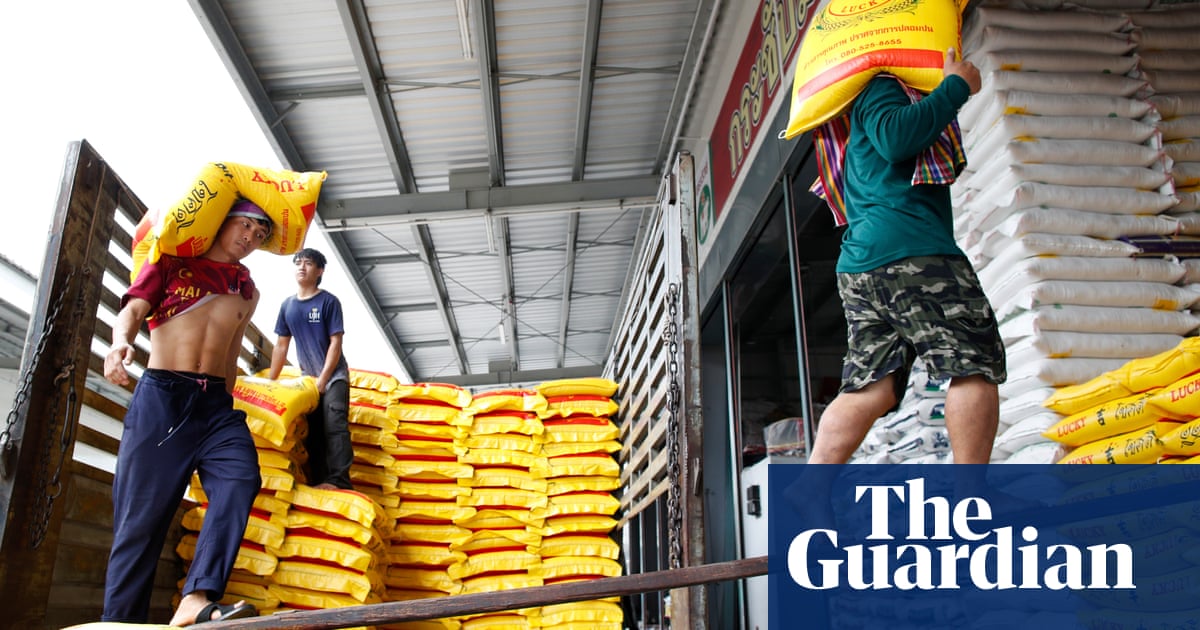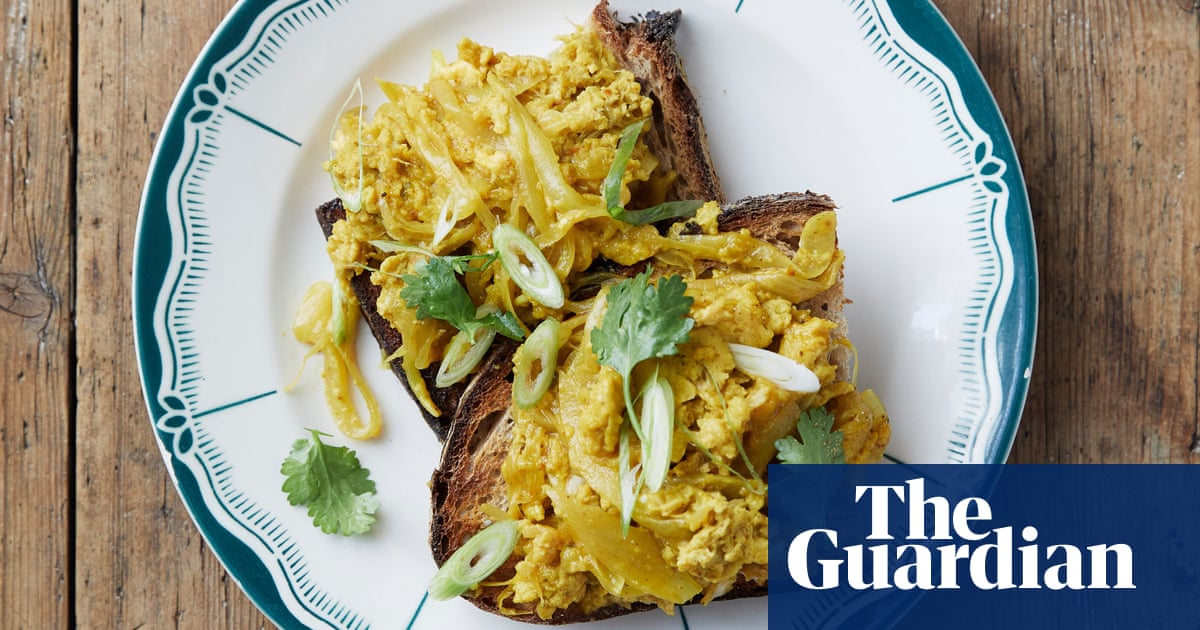When my friend Meron introduced me to this Ethiopian dish of cabbage, potatoes and carrots, I fell head over heels. I begged her to show me how to make it, and then cooked it for weeks afterwards. Even now, I cannot think about it without feeling excited, which is an unexpected way to feel about cabbage, carrots and potatoes. I enjoy cooking it, too, not least because it involves the slow stirring of a pot bursting with vegetables until they become reduced, rich and elemental. It’s traditional to eat this with injera, a sourdough pancake, but, given the complexity of making that, I’ve come up with a quick(er) alternative.
Ethiopian tikil gomen with yeasted pancakes
You’ll need a good nonstick pan with a lid, and a blender to make the pancakes. The cooked pancakes will stick to each other when layered and hot (this is normal), but you’ll be able to peel them away gently one by one once they’ve cooled slightly. If you don’t fancy making them, though, serve the cabbage and potatoes with some good sourdough instead.
Prep 15 min
Rest 1 hr+
Cook 1 hr
Serves 4
For the yeasted pancakes (makes up to 12)
1 packet instant yeast (7g)
325g plain white flour
¾ tsp fine sea salt
2 tbsp apple cider vinegar
For the tikil gomen
6 tbsp olive oil
1 large brown onion, peeled and finely sliced
2 carrots (350g), halved lengthways, then cut on an angle into 2cm-wide pieces
1 medium cabbage (750g), cored and shredded
2 potatoes (300g), cut into ½cm-thick chips
4 garlic cloves, peeled and minced
½ tsp ground turmeric
1 tsp fine sea salt
For the pancakes, put the yeast, flour, salt and vinegar in a blender, add 550ml hand-hot water and blend for a few minutes to aerate the mix. Pour the batter into a large bowl, cover with a tea towel or clingfilm and leave somewhere warm for an hour or so; if you don’t have anywhere warm, heat the oven to very low (50C), then turn it off, uncover the bowl and pop it in the warm oven instead.
Meanwhile, make the tikil gomen. Put all the oil in a wide-bottomed pot or pan for which you have a lid on a medium heat. When the oil is hot, add the onion and carrots, and cook, stirring, for five minutes. Add the cabbage and cook, stirring occasionally, for 20 minutes, so it doesn’t burn and cooks evenly.

Add the potato chips, garlic, turmeric and salt, mix well, then clap on the lid and leave to cook for another 20 minutes, until the potatoes are cooked through and the oil separates and is released back into the pan (you’ll know by checking the bottom of the pan).
To cook the pancakes, heat a good nonstick pan for which you have a lid, and have a plate ready to one side of the stove. When the pan is good and hot, pour a cupful of the batter into the centre of the pan (I used a ⅓ cup measure, which is 80ml), and immediately swirl the pan around so the batter covers the entire base. Cook for 15 seconds, or until the first 4cm around the edges of the pancake looks cooked, then pop on the lid and leave to cook for a further 30-45 seconds. Lift off the lid: if the top looks dry and not wet, the pancake is cooked.
Lift out on to the plate and repeat with the remaining batter, layering the pancakes on top of each other as they are done. Fear not if it looks as if they’re sticking – once they’ve cooled down, you’ll easily be able to peel them away from each other.
Serve the pancakes alongside the hot cabbage, encouraging everyone to rip off a bit of pancake and use it to scoop up some of the stew.

 2 months ago
38
2 months ago
38













































